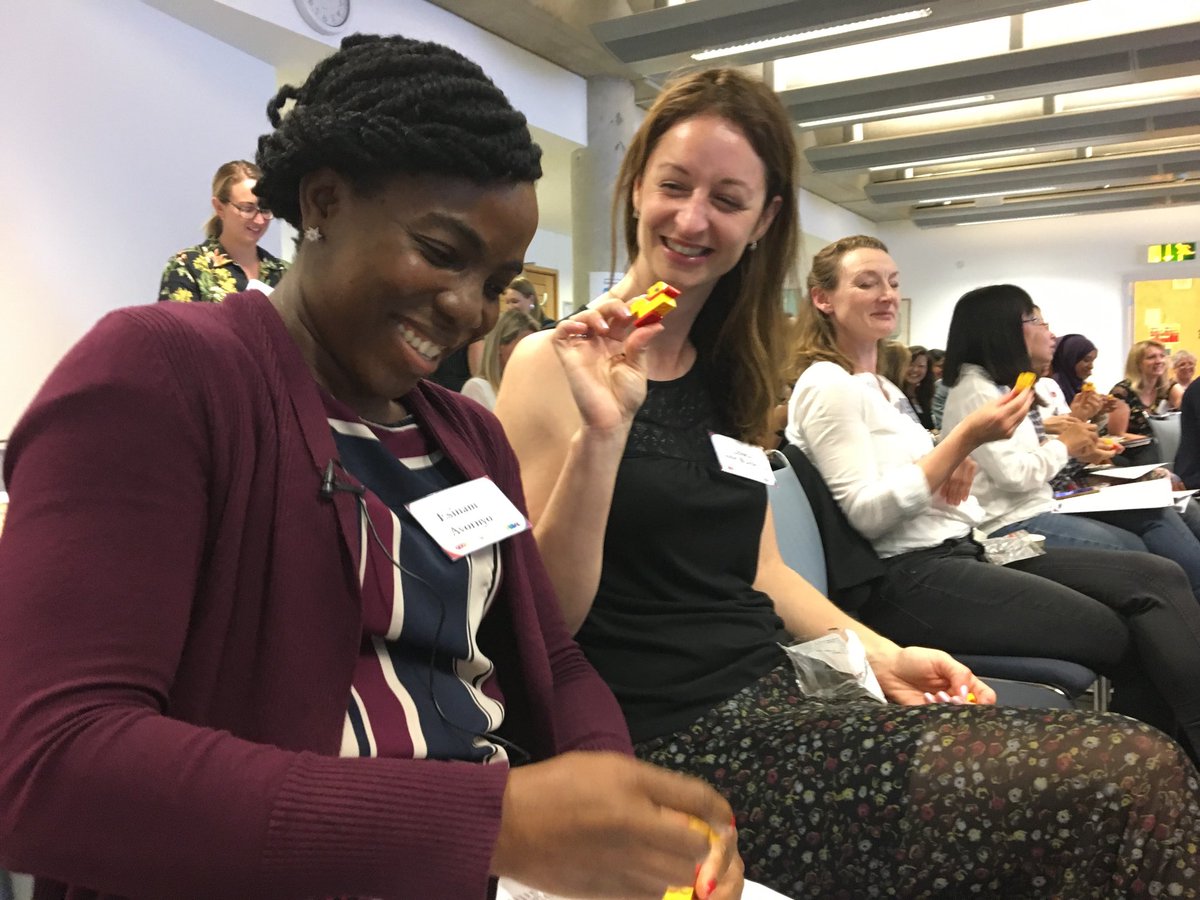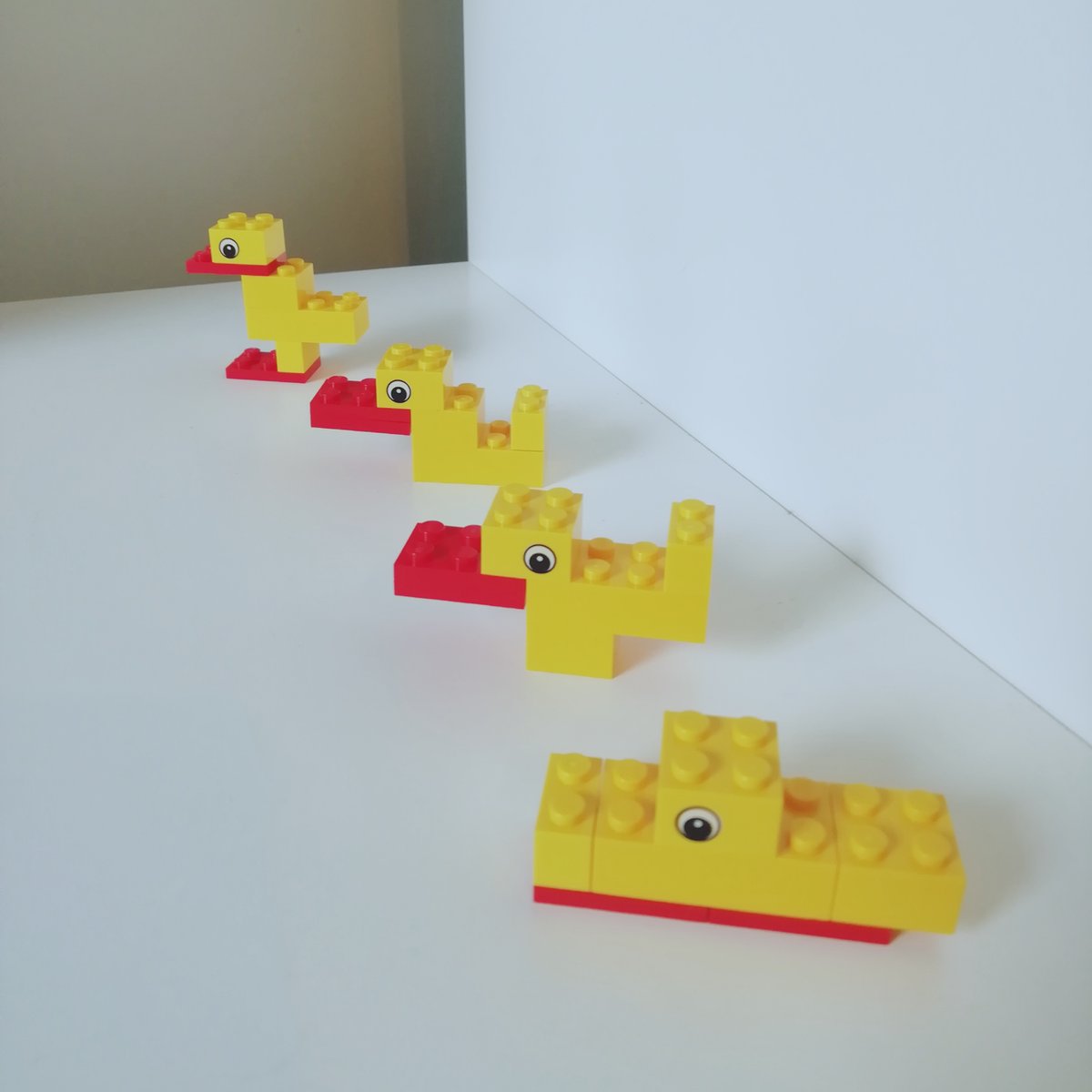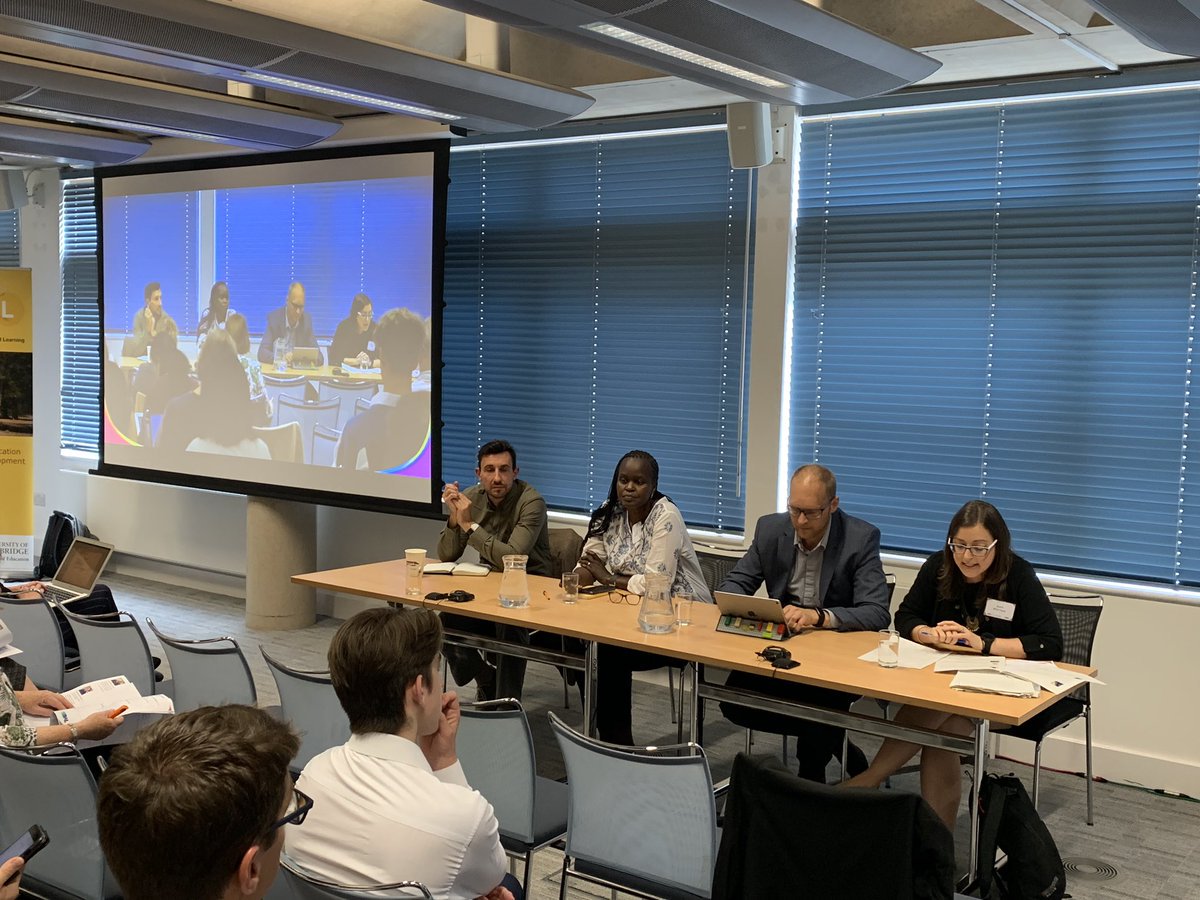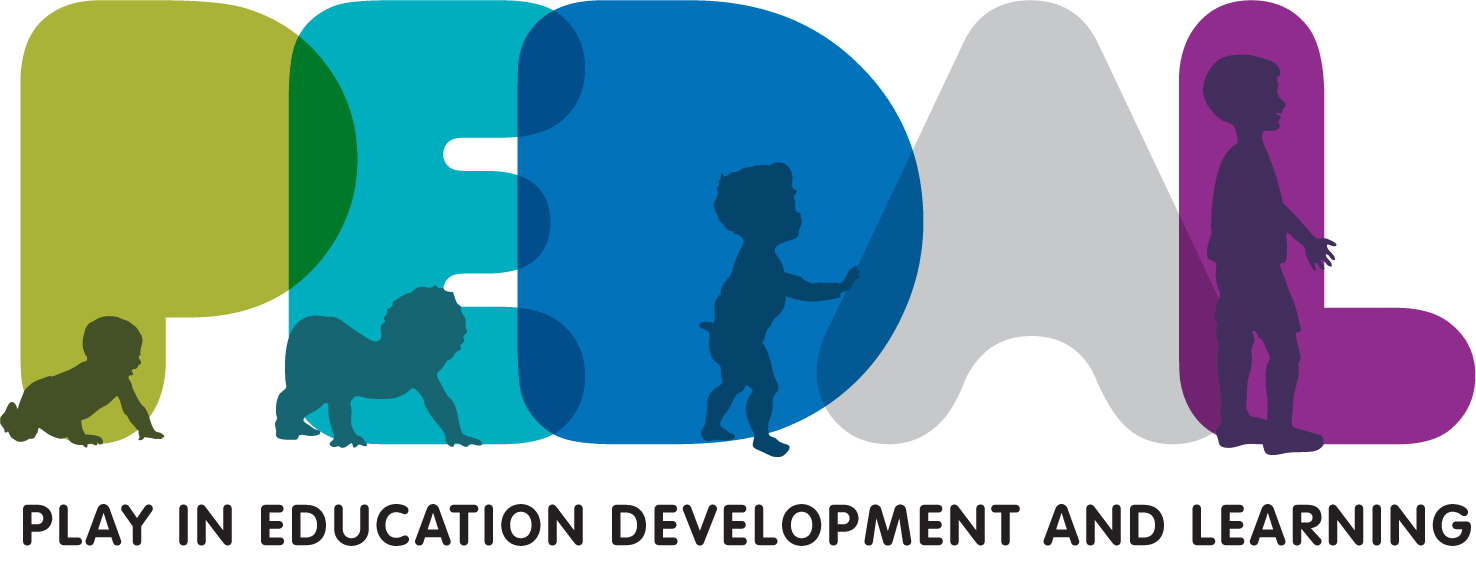ARCHIVE: This material is no longer maintained and should be viewed for reference only
This page represents PEDAL News and Events up to 2020. You can visit our News page for the latest on what's happening at the PEDAL Centre and our Events page for our programme in 2020 and beyond.
Conference perspectives: Learning to Play and Playing to Learn
Janina Eberhart, PhD student in the PEDAL Centre
In early July, the research centres Play in Education, Development and Learning (PEDAL) and Research for Equitable Access and Learning (REAL) joined forces to host their first shared conference “Learning to play, playing to learn”. PEDAL mostly applies a psychology lens and focuses on play and children’s development mainly in more economically developed countries; whereas REAL looks at education and children’s development in the global South. Commonalities between the centres have been highlighted by the increasing number of PhD students working across the two. Combining these two research areas was proposed by Stephen Bayley, a PEDAL-REAL PhD student who could see the overlaps and great potential of developing a better shared understanding of how play can support children’s early learning and development in low-income countries.
The conference took place on Tuesday 2 July 2019 at the Faculty of Education. A diverse and enthusiastic audience of around 200 academics, professionals, policy makers and students discussed the role of play and playful learning in low income countries and low resource settings in middle- and higher-income countries. The interest showed that the topic is highly relevant and has great potential to inform policy and practice.
The livestreamed conference began with an address by Professor Charlotte Watts, Chief Scientific Adviser from DFID (Department for International Development). Professor Watts emphasized how crucial the first years of life are for children’s development. This is why DFID funds an increasing number of research projects to better understand how young children’s development can be supported. Many people around the globe experience violence and conflict, with children facing particular challenges. Professor Watts described programmes such as ‘Right to Play’ in Pakistan, which led to positive effects such as a reduction of peer violence. Dr Erum Mariam, Executive Director of BRAC (Bangladesh Rural Advancement Committee), also emphasized the benefits of play for displaced children. She reported on ‘Play Labs’ in Bangladesh for Rohingya refugees. Play was used in this context to help children deal with the trauma and violence they experienced. The beauty of this project is that it aims to understand the cultural specificities of Rohingya play to help children feel more comfortable and to preserve their culture. Furthermore, it connects Bangladeshi and Rohingya people to strengthen the relationships between the host country and refugees.
The first panel focused on how play contributes to early learning in low income settings. Sarah Bouchie from the LEGO Foundation facilitated a discussion between Ivelina Borisova, lead for UNICEF’s global work on early childhood and early learning, Kevin Watkins, Chief Executive of Save the Children, and Dr Esinam Avornyo, a recent PhD graduate of the PEDAL centre. All panellists advocated for playful early childhood education (ECE) programs, but they also emphasised challenges. Ivelina Borisova described how meeting the Sustainable Development Goal to provide universal childcare by 2030 will require doubling the workforce (approximately by nine million educators). Ensuring qualification, pre-service training, and continuing professional development is a huge challenge. Kevin Watkins emphasized how inequality and poverty put poor children in disadvantaged positions from the very start and how welfare budget cuts directly impact the development of disadvantaged children in the UK. He stressed the opportunities of adopting a play approach to learning in conflict settings, noting that you can rob children of a lot of things in these settings, but not their imagination. Dr Avornyo then presented positive effects of play-based learning approaches in Uganda, Kenya, Tanzania and Ghana, she also spoke about the challenge that parents often have different understandings of education. Her research in Ghana has shown that play is not seen as a valuable activity that can support learning but rather considered as something done in breaks to help children to be better focussed when they return to more formal learning.
The second panel was moderated by Anna Vignoles, Professor of Education, and addressed measuring and assessing play. In order to provide scientific evidence of the benefits of play, it needs to be measured. Dr Ben Alcott from the REAL centre; John Jerrim, Professor of Education and Social Statistics, University College London; and Dr Jenny Gibson from the PEDAL centre discussed the highly debated topic of how play can be measured. Dr Alcott reemphasized Dr Avornyo’s point that parents’ view of play conflicts with ECE policies which promote psycho-social development and play. If parents do not see the value of play, it can be counterproductive to show that lots of play happens in ECE settings as parents might send their children to other settings. Professor Jerrim highlighted that there are benefits to many approaches to play measurement, but the purpose needs to be carefully considered. He also emphasized the importance of context. Dr Gibson emphasized the importance of play for social development. Her longitudinal study recorded two children playing together and coded for attention, negotiation, joint proposals and enactment. The data indicate that context matters and play behaviour is mostly influenced by the play partner.
The final panel gave an outlook into the future of play. This panel was facilitated by Amy Potter, a Health Adviser from DFID and included Dr Sara Ruto, Chief Executive Officer of the People’s Action for Learning (PAL), Tom McBride from the Early Intervention Foundation and Bo Stjerne Thompson from the LEGO Foundation. Dr Ruto introduced the Combined Activities for Maximized Learning approach which aims to accelerate children’s maths and literacy with fun, engaging multisensory activities that are set at the right difficulty level. Tom McBride discussed 21st century skills and raised the question of whether we teach the right skills to foster competency such as interdisciplinary and creative thinking? Bo Stjerne Thompson emphasized the importance of making knowledge accessible and bridging research and practice.
It was great to see and hear speakers’ passion and dedication to children’s play, development and learning in low-resource settings. I also appreciated that cultural differences were critically discussed. Hopefully, the conference was a starting point for new collaborations that promote playful learning approaches in low-resource settings around the globe.
Learning to Play and Playing to Learn Conference, 2nd July 2019
200 academics, policy actors and practitioners spent the day discussing the possibilities of play-based learning in low income countries as well as in low resource settings in middle- and higher-income countries. The conference was jointly hosted by REAL and PEDAL Centres, the one-day event provided an opportunity for participants to build a shared vision for the future of play-based learning.
Conference opened by DFID Chief Scientific Advisor
The conference was opened by Professor Dame Charlotte Watts, Chief Scientific Advisor who highlighted that DFID is prioritising funding of evidence on early childhood development given its importance to future opportunities, and that it is even more vital for the most marginalised; and Dr Erum Mariam, Head of Director of BRAC, Bangladesh, who spoke about Play Labs in Bangladesh for Rohingya refugees.
Panel discussions on exploring play
This was followed by three panels that explored how play contributes to early learning in low income settings; how to measure and assess play; and, what the future of play looks like. Drawing on a range of expertise from different geographical contexts, as well as across academic disciplines and from policy actors and practitioners, we heard about:
- How domestic and donor funding of early childhood education is extremely low, and so is an urgent need for expansion if play-based learning is to be effective
- How the role of play is crucial to a child’s development – particularly for children who have grown up in a violent or traumatic context
- The need to understand the links between play and issues such as mental health, psychosocial support, and child protection
- The need to understand the benefits of different forms of play, what needs to be measured, and how best to measure play
- The vital importance of understanding context in defining and measuring play
- The need to understand and address the potential misalignment between parent, politicians and teachers’ perceptions of play and its potential benefits.
Lego duck Challenge #playingtolearn
There was also some time for a LEGO duck building challenge! and throughout the day, there was active tweeting via the hashtag #playingtolearn.
With thanks to the LEGO Foundation
The PEDAL and REAL Centres are extremely grateful to the LEGO Foundation for supporting this event and getting us all to think more creatively about play.
Play in Parliament 
On 4th July 2019 PEDAL held a parliamentary event on Parents, Play and Emotional Wellbeing to discuss the important role of early play in children’s development. The event was hosted by Dr Paul Williams MP, chair of the Health and Social Care Committee’s Inquiry into the First 1000 days. Presentations we
re given by Dave Neale and Paul Ramchandani from PEDAL and Sarah Bouchie from the Lego Foundation.
The event generated a rich discussion via panel responses led by Sally Hogg, Dr Williams, Professor Viv Bennett Director of Nursing, Maternity and Early Years at Public Health England and Tom Rahilly Director of UK Programmes, Save the Children. The discussion centred on the need for a societal and cultural shift to childhood that values its importance in its own right, to mobilise shared leadership, responsibility and investment in play and the early years, and to break down the barriers of poverty and stress that impinge on families’ access to and engagement with play.
PEDAL hope to make this the first of many conversations to convey that childhood and play matter. View the first PEDAL Evidence brief leaflet shared at the event in Parliament.
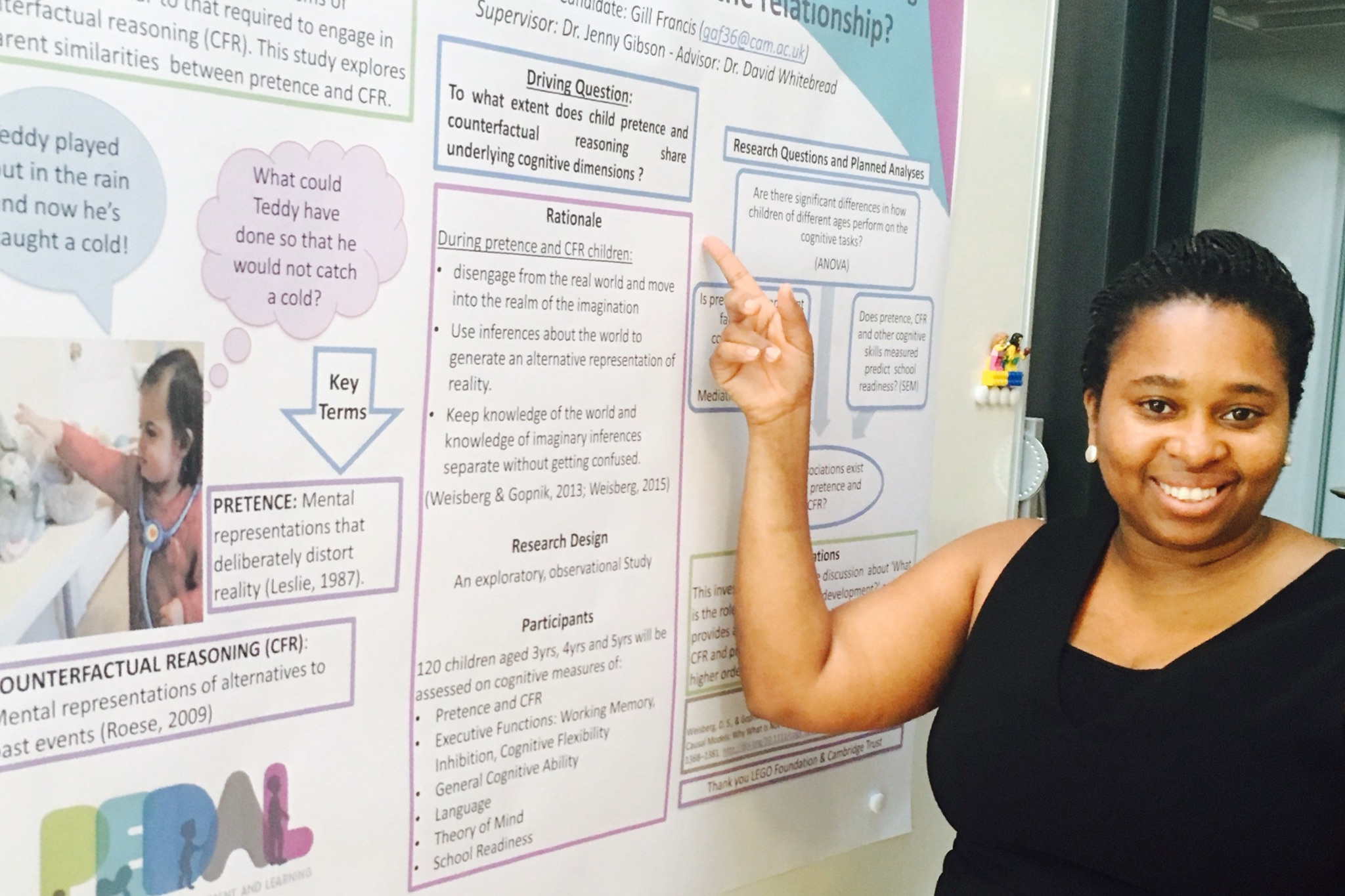 New research on technology & play
New research on technology & play
Gill Francis, PEDAL PhD student, along with William Farr, Dr Jenny Gibson and Silvana Mareva have published a paper that compares autistic and typically developing children's play with passive and digital construction toys. Investigating whether 'Tangible User Interfaces' (TUIs) promote social behaviour during free play, the research found that TUIs don't inhibit social engagement and can lead to more social play - especially in children with autistic spectrum conditions.
School starters want more help in managing friendship, new research finds
friendship, new research finds
Children aged four and five have called for more focus on helping pre-schoolers learn to avoid rejection and resolve conflict with fellow pupils in a pioneering research project designed to prepare youngsters better for starting school.
A study led by PEDAL's Dr Christine O’Farrelly asked pupils seven months into their Reception year what they thought a new school starter would need to know.
The children, aged four and five, highlighted the need for strong social skills to take the plunge and make new friends and navigate friendships, but also to avoid distress and victimisation. Other priorities suggested by the children included having the confidence to ask to go to the toilet, to be able to play creatively and especially outside in a space where they felt safe, and to have strong links between school and home.
The research, published in the journal Early Childhood Research Quarterly, is based on the views of 42 children in a school in a deprived area of north Dublin. In the Children’s Thoughts About School Study, academics used pictures showing typical scenarios to focus discussion, and asked pupils to give a cartoon character called Riley Rabbit advice on preparing for starting school as well as discussing their own experiences.
While very young children have been asked about their school experiences before, the study is believed to be the first explicitly to involve pupils in improving the interventions that will target their younger peers.
Watch the research seminar 'Toddlers Think for Themselves!'
Our Lent term research seminar was with Dr Elena Hoicka from the University of Bristol who presented two streams of research – toddlers’ creation of their own novel jokes and pretending, and toddlers’ divergent thinking with novel objects. She demonstrated that social learning can be an important part of children’s independent learning and thought, suggesting both of these strands of learning are inter-connected.
Dr Hoicka's core research area is cognitive development, focusing on creative play in early development, including humour, pretending, and creativity. This topic has strong links to education as two of the three characteristics of effective teaching and learning in the Early Years Foundation Stage are (1) playing and exploring, and (2) creating and thinking critically. While this research area is central to education, there is surprisingly little experimental, quantitative research on creativity in early development. One way in which Dr Hoicka's research fills this gap is by using experimental, quantitative methods to discover that toddlers can think for themselves. Elena's work also ties social learning and creativity together, with several of her papers suggesting young children can socially learn to think creatively.
Watch the video of her talk here.
Play at the Extremes - a panel discussion
On 18 October PEDAL held an event that explored the changing nature of childhood - if children are kept too safe, if parents and schools are too risk averse, and whether adventurous and independent play opportunities provide unique developmental, social and emotional benefits. With panellists including Tim Gill (Re-thinking Childhood), Dr Kathryn Lester (University of Sussex), Steve Mitchell (Chair, Parkour UK) and Nicola Butler (Director, Hackney Play Association & Chair of Play England), you can watch the video of the discussion here.
Research seminar videos
Every term PEDAL invites experts from all over the world to talk about different aspects of play research.
You can watch past talks by world-leading academics such as Prof Kathy Sylva, Prof Kathy Hirsh-Pasek, Prof Clancy Blair and Prof Anthony Pellegrini, by visiting our video/audio archive.
If you'd like to attend these free events in person, do join our mailing list.
Latest PEDAL e-newsletter
For details of forthcoming PEDAL events, links to our latest research publications and updates from the team, you can see our latest newsletter here.
Sign-up to receive it straight into your inbox every term.
Wearable tech makes research into playground social interaction possible
A multi-disciplinary team (including PEDAL's Dr Jenny Gibson) has trialled promising new wearable wireless technology for conducting research into playground social behaviour - what happens when 'loose parts' play equipment and play workers are introduced at playtime? Read more in the pre-print.
Ghanaian views on the role of play in learning
New article in the Association for Professional Development in Early Years (TACTYC) international research journal by PEDAL PhD student Esinam Avornyo, exploring multiple stakeholder perspectives on the role of play in the classroom for 3-5 year old children. Key findings indicate that teachers and parents with higher levels of education appreciate the value and benefits of learning through play, but that rote learning is still perceived as the best route to school readiness by those with fewer qualifications. Though not as attractive to upwardly-mobile Ghanaian families as private schools, state schools often have the best qualified teachers who are more receptive to play-based pedagogies. Read the article here.
New research on links between how parents play with children and executive functions
A new study by PhD student Min Kyong Lee, PEDAL's Dr Sara Baker and Dr David Whitebread has been published in a themed issue (on scaffolding) in the British Journal of Educational Psychology. This research looks at parent child interaction and executive function in a sample of families from South Korea and is FREE to download until the end of July 2018 here.
Public Lecture with Prof Kathy Hirsh-Pasek.jpg)
"Yale Professor Ed Zeigler wrote that “play is under siege.” In 1981 40% of a child’s discretionary time was spent in play. By 1997 that time had already decreased to 25%."
Taking this as her starting point, world-renowned developmental psychologist and expert in play, Prof Kathy Hirsh-Pasek, gave a PEDAL public lecture entitled 'A Prescription for Play: Why Play Fosters Social & Cognitive Development' in May 2018. You can see a video of Kathy's inspiration talk here.
Research Seminar with Prof Daryl Greenfield
"Science has the power to engage early childhood educators and young children in hands-on, minds-on, fun and engaging experiences that increase the quality of teaching as well as provide young children with critical problem-solving skills and improved learning in multiple school readiness areas."
Prof Daryl Greenfield led a research seminar for academics, educationalists and teachers on the subject of early childhood science education - what approaches work, what skills it develops in children, how it improves teaching practice and the potential policy implications. You can watch a video of his talk here.
Watch a webinar about playing with babies & toddlers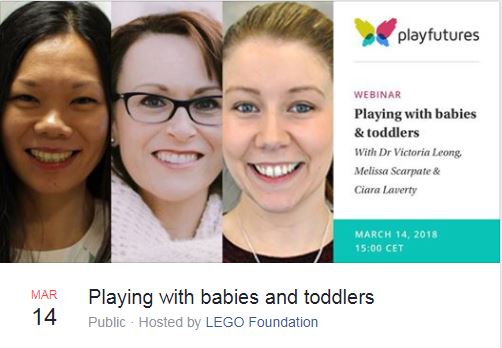
Hosted by the LEGO Foundation's Play Futures online platform, this webinar covers the following questions:
- What styles of interaction do we see between babies and caregivers?
- How can you tune in your infants’ cues and signals for play?
- And how do these positive, playful moments influence development?
Contributors are:
Dr Vicky Leong - Developmental cognitive neuroscientist interested in how parents and infants communicate and learn from each other. She heads the Baby-LINC Lab at the University of Cambridge where she uses electroencephalgraphy (EEG) to study how mutual synchronisation could help babies to learn from their mothers.
Dr Ciara Laverty - Research Associate at PEDAL, interested in how parents play with their babies (0-2 year olds), and what a playful interaction looks like.
Dr Melissa Scarpate - a freelance research consultant holding a PhD in Human Development and Family Studies.
Hanne Jensen: Research Specialist at the LEGO Foundation Centre for Creativity, Play and Learning. Hanne's research focuses on children’s Learning through Play, particularly how interactions between children and adults can frame learning opportunities.
Prof Paul Ramchandani - paper published on depression and playfulness in fathers
A research paper has been published by Prof Paul Ramchandani entitled 'Depression in and playfulness in fathers and young infants: A matched design comparison study'. Key findings include:
- playful behaviours at 3-months differ between depressed and non-depressed fathers;
- depressed fathers use less playful excitation, gentle touch and active engagement;
- coding measures focusing on fathers may accurately detect and classify playfulness;
- unique features of paternal play could be a target for future family interventions.
You can download the paper via this link.
Dr David Whitebread - A Farewell Talk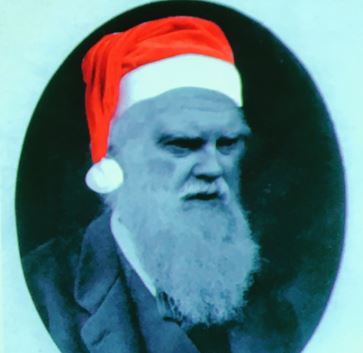
Watch a video of the informal talk by Dr David Whitebread entitled 'A Life in Teaching & Research (or I Could Have Been a Rock Star!)' as he retires from a career in teaching and research.
David looks back at his formative experiences as a primary school teacher and how that led him to thirty plus years as an academic at the Faculty of Education at the University of Cambridge, culminating in the formation of PEDAL - a research centre that examines the role of play in children's education, development and learning.
Play: A Window into Children's Social Worlds
Prof Anthony Pellegrini joined a group of esteemed academics as part of Dr Jenny Gibson & Dr Vicky Leong [https://www.languagesciences.cam.ac.uk/directory/vvec2@cam.ac.uk]'s two day symposium entitled 'Breaking Barriers' on 11th & 12th September 2017. Looking at how research in the field can be enriched by new technology, Prof Pellegrini talked about the difficulty of defining play and why this impacts its research. You can see his talk here.
Dr Jenny Gibson and Dr Behzad Heravi spoke about HOPSCOTCH (Hi-Tech Observation of Playground Social Communication Trajectories in Children) - using wireless satellite navigation equipment to look at how the playground environment affects social interaction. You can see their talk here.
Dr Elian Fink gave a presentation 'Baby Talk' - a research project aimed to explore the association between infant-parent play at four months of age and the child’s linguistic environment in the home. Using a ‘talk-pedometer’ – a lightweight audio recorder worn by the child, able to record 16 hours of audio, researchers were able to measure adult word count, infant babbles and parent-infant turn-taking. You can see her talk here.
Alejandro Moreno presented research in the context of analysing and shaping children’s play behaviour in interactive playgrounds, technology-enhanced spaces where players engage in co-located, playful activities. You can see his talk here.
New Professor for PEDAL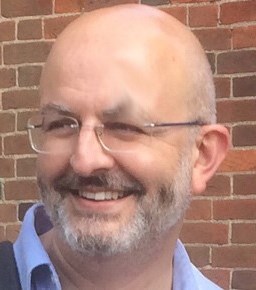
We are delighted to introduce the new LEGO Professor of Play in Education, Development & Learning - Professor Paul Ramchandani.
For all media enquiries please contact the University of Cambridge's news desk on 01223 332300.

